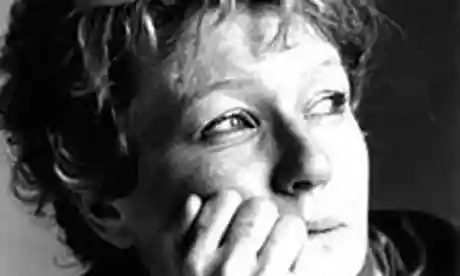Just back from Puerto Rico, where she has been giving creative-writing seminars, Dacia Maraini is still a few hours out of synch in her apartment on the eighth floor of a Roman high-rise, a short walk from the Tiber. She has disguised her jet lag with startling blue eyeliner. Her manner is efficient, her body small and energetic. “We did not have these things creative-writing classes in my day,” she says. “To become a writer, you had first to be a reader.”
That, says Maraini, was how she started out, from a very young age immersing herself in the classics of all cultures. In her teens she read Dickens and Austen, but also Jack Kerouac, and she began writing her first novel at 17. There followed a long literary career during which she has been awarded the Prix Formentor (in 1963, for her second novel, The Age of Discontent ) and the Premio Campiello, Italy’s equivalent of the Booker Prize (for The Silent Duchess in 1986). Her latest novel, recently published in English as The Violin, has already sold more than 100,000 copies in Italy alone.
As the daughter of a Sicilian princess and a half-Irish anthropologist adventurer, and as the lover for almost 20 years of the great novelist Alberto Moravia, Maraini has always had popular appeal, but she has also provoked sniping criticism from literary journalists. Some pointed out that Moravia was an influential presence on the judging panel for the Prix Formentor the year Maraini won it. Others accused her of sensationalism. “It has taken 30 years for me to be accepted by the critics,” she says.
Maraini has always had strong views. This has sometimes led her to behave in a way that could be construed as courting controversy. She set up a literary magazine, Tempo di Letteratura, when she was 17 and still at the Garibaldi School in Palermo. “The essential thing was that it provoked a response from my fellow students. It led to confrontation.” Confrontation, it seems, is a key word for her. During her affair with Moravia, she wrote and performed a poem addressed to him that ends with the line: “Tomorrow, at dawn, you will piss in my hands.” That could be called fairly confrontational.
She became an energetic advocate of women’s rights, and in the early 1970s set up the only all-female theatre in Italy, Il Teatro della Maddalena. The idea was to give women the opportunity for writing and directing, as well as acting. Maraini’s maxim, “Io sono mia” (I am mine), became a battle-cry for the Italian feminist movement. In the early 1990s, she publicly criticised the Pope for urging Bosnian rape-victims not to have abortions. This provoked the wild headline in a prominent Catholic newspaper: “Che La Maraini Taccia” (Maraini: Shut Up).
In fact, people have been trying to silence La Maraini for decades. Over the course of a career that has encompassed novels, plays, poetry and screenplay-writing, she has been prosecuted five times for obscenity. And indeed, the issue of speaking and silence is fundamental to her art, particularly with regard to the way women’s voices have been suppressed over the centuries. In The Silent Duchess, the protagonist, Marianna, is a deaf-mute as a result of having been raped at the age of five. Isolina centres on the eponymous character’s death during a forced abortion performed with a fork by a gang of army officers.
The Violin, by contrast, is a work in which women have their voices. It consists of a series of letters written by Vera, an experienced middle-aged playwright , to Falvia, a six-year-old girl. These letters detail the love affair between Vera and Edoardo, a young violinist and Flavia’s uncle. “The story is not exclusive of men,” Maraini insists. “Edoardo is the emotional focus.”
Yet even here, in a story told by a woman to a girl, the theme of silenced females is not entirely absent. One of the book’s strongest emotional punches comes in its description of the slow death from a throat infection of Vera’s sister, Akiko. Akiko had been a wonderful singer. But now: “They had made an incision in her throat and she was breathing through a little hole in her neck covered by a piece of gauze. She could not speak.. She was constantly bringing her hand with its painfully bent fingers up to her throat in an expression of timid disbelief.” The pathos is tightened by the knowledge that Maraini’s own sister died when the book was half-written.
On the whole, however, The Violin is an uncharacteristically dulcet addition to the Maraini oeuvre. The epigraph is a quotation from Leopardi: “Sweetness itself; but underneath the pain / the present thought, vain longing / for the past . . .” Maraini admits it is less angry than some of her novels. Affection is its keynote – and its virtue. In the final pages, Vera tells Flavia: “Real strength is always accompanied by a quality of serenity and gentleness. It is only frightened men who are aggressive, overbearing and violent.”
This could serve as a comment on what may have been the crucial event of Maraini’s young life. She was imprisoned, along with her parents, in a Japanese labour camp for their refusal to support the Japanese-Fascist alliance. Her experiences there (which she has called “two years of hell”) led to aphasia. “For a long time afterwards I could not speak. I became too shy and nervous to perform simple daily tasks. The only way I could express myself, I discovered, was through writing.”
Conversely, though, the only thing she has never been able to write about is what happened inside the labour camp. This is a silence she plans to fill with her next work. “Always in the back of my mind I have known it was something I had to express. But I have suffered from a refusal of memory. At last, I am ready.”

